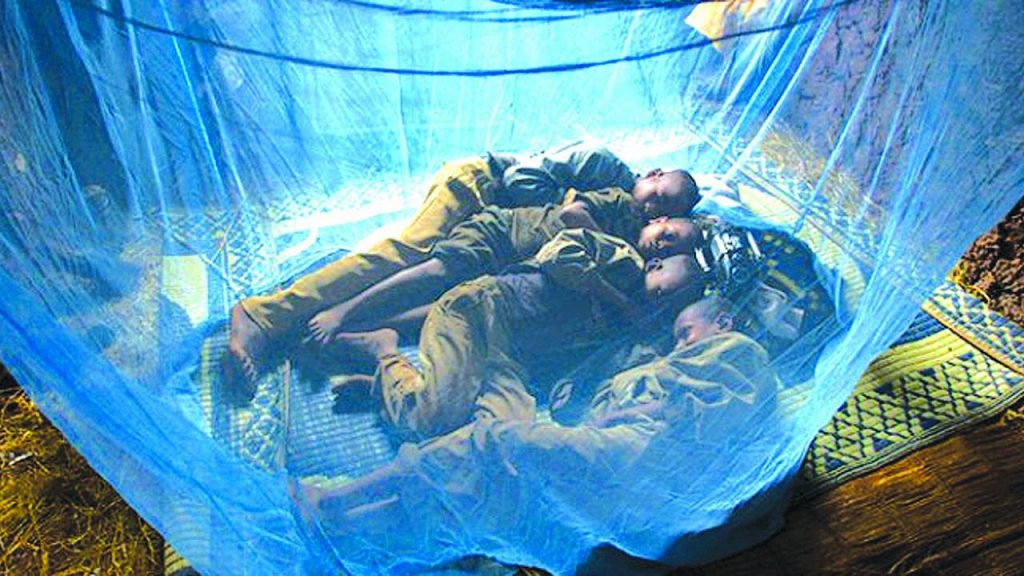The Civil Society in Malaria Control, Immunisation and Nutrition (ACOMIN) emphasised the need to ensure proper use and disposal of Long-lasting Insecticide Nets (LLINs) to ensure that they do not pose harm to the environment and the people.
Meanwhile, the group has unveiled a report of research carried out on the End-Life Management of Long-lasting Insecticide-treated Nets (LLINs), which revealed that 99.4% of used nets are disposed of unsustainably.
Nigeria accounts for 27% of global malaria cases and 23% of malaria deaths, and LLINs remain a key malaria prevention tool in the country.
Speaking at the dissemination of the findings and recommendations of the research to stakeholders in Abuja, ACOMIN Senior Manager, Operations, Fatima Kolo, said that improper disposal of the nets contributes to global warming.
Kolo noted that burning the nets, which contain chemicals, can release toxic substances into the air, and the residue can contaminate soil and water, harming livestock and humans.
She explained that ACOMIN, in October 2024, got support from Westergaard, a manufacturer of long-lasting insecticidal nets (LLINs), to conduct a study on the end-of-life of LLINs to evaluate their efficacy over time, considering that their lifespan can be limited due to wear, tear, and insecticide degradation.
Kolo stated that the objective of the meeting was to share the findings with partners and stakeholders, look through the recommendations, provide a roadmap on how those recommendations can be implemented, and incorporate them into future plans.
She said, “The disposal of the end-of-life comes with mixed feelings. For the purpose of malaria prevention, the end-of-life stops when it ceases to be effective in protecting the beneficiary from mosquito bites. But in other areas of reuse, it still has an afterlife.
“We have a lot of work to do when it comes to educating our people on the proper use of the nets. We also need to educate them on the healthiest way to dispose of them for the benefit of both the beneficiaries and the community at large. So, what do people do with it? Here comes the concept of either reusing, repurposing, recycling, disposing of, or destroying it. You need to look at its environmental effects and public health risks associated with long-term management.”
“For some people, the nets are used as screens for vegetable gardens, and if the nets have exhausted their use for preventing malaria, those other uses are permissible, provided they do not cause harm to the environment and people within.”
Presenting the findings of the study, the Principal Investigator and leading researcher at the University of Abuja, Prof. Adeyanju Temitope Peters, said that over 75% of LLINs are distributed through free mass campaigns, adding that insecticide-treated nets have gone a long way to help reduce the burden of malaria parasite disease in Nigeria and Africa.
He noted that despite high ownership, consistent use and proper care remain suboptimal, adding that 99.4% of used nets are disposed of unsustainably—burnt or thrown into the trash.
Peters observed that as LLINs reach the end of their effective lifespan, often around three to four years, the proper disposal and management of these used nets become a critical concern.
He noted that there is growing concern about their management when they reach end-of-life, adding that the end-of-life for the nets is between three to four years after usage.
According to him, used nets become a critical concern considering that improper disposal risks contamination, with public health risks, adding that used nets can exacerbate malaria transmission.
He pointed out that improper disposal risks contamination and that used nets can exacerbate malaria transmission.
Peters explained that the study aimed to provide data to improve sustainable LLIN lifecycle management. Its objectives were to assess LLIN ownership, usage, maintenance, and disposal practices, identify factors influencing discontinuation, examine post-usage scenarios including recycling, repurposing, and collection, and determine community willingness to return used nets.
He observed that in most parts of Nigeria, people reuse the expired mosquito nets as window blinds and sometimes even to keep some of their foodstuffs.
“Some people even use it as sieves, and because of the chemical content, it is also affecting our system,” he added.

